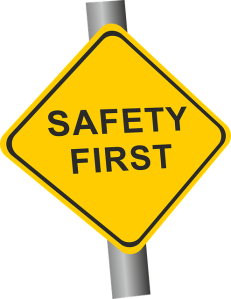Within my last series of blog posts, I have explored the nature of an issue that concerns us all: Is the Internet making us bad people? As we all become more and more interconnected with the new online landscape, I have examined much of what has changed in the past decade and the impact that it has had on not only the physical communication that we do, but the work that it has had on our psyche and mental ability. People have learned to take advantage of the power of the internet ranging from millions of dollars being raised for charity to millions of accounts being hacked and having their credit card information stolen. I have overall come to the conclusion that while the internet does have a massive amount of potential to do good, its current state allows the freedom of too many bullies, identity thieves, pedophiles, and scammers which ultimately creates an environment that is unsuitable for not only our children to traverse, but for many adults as well. Yet what can we do to change this? I propose that creating new policies to create a better system of education that allows for people of all ages to better protect themselves from the potential hazards that they may come across while they browse the web.
From a young age, we are taught to come home before dark, to never talk to strangers, to never accept gifts from anyone we don’t know, and to always think before we act. Our parents and our teachers hammer those basic rules into us and we follow them. It is sound advice, and it is advice that we teach to our children, and they will teach to their children’s children. But as our societal paradigms have changed, so have the rules we were taught as children. Smoking is now actively taught as self-destructive behavior, wearing a seatbelt is now mandatory by law, and we now always look both ways before crossing the street lest we be hit by a car. So it only makes sense then that as our children and many adults begin spending increasingly large amounts of time online and on the web that we teach proper online etiquette as well as teaching them to be wary of online predators who would look to do them harm.
Yet this type of education is surprisingly lacking in our homes and schools and so our children are liable to many forms of deception. As a newcomer into our households, our internet usage is often not a major concern among some families when there is real danger out there. Many would know of the old “Nigerian Prince” scam where an individual would be sent a large sum of money that they could hold onto a percentage of and that they could then return(more details available here). Even more recently, a child playing the Playstation game Destiny was cheated out of control of his game and had much of his effort spent playing on the game made absolutely worthless when a would-be helper deleted much of his save file. The creator’s of the game, Bungie, could do little about it as the child in question deliberately gave up control of his console to a stranger and the stranger ultimately in no way violated any of Bungie’s End User License Agreement. Had the child been better educated in the way he interacted while playing online games, he might have avoided these potential pitfalls.
A post on the Information Is Beautiful website shares an excellent visual representation of some of the biggest hacks in the history of the internet, many of which gave access to credit card information, full accounts, and personal information. The attack on Sony alone hit around seventy seven million people exposing any and all information that they had saved on their consoles and phones creating mass hysteria. We need to be able to address concerns like these, to teach people to be more careful with their information and to have backup plans in case something like this does happen and your identity is stolen. If we can’t help prevent and then in the case of an event like the Sony hack have our information unlawfully accessed, then we are only serving to draw a target on ourselves. It is not only the responsibility of the corporations and banks and businesses involved to create a secure system, it is up to us to teach common sense about what to do and what not to do when you are online.
So what can we even do about this? How can we educate the masses about what will happen if you aren’t careful on the internet? One way to do that would be to set up educational workshops, subsidized by the government. These workshops will have information about what we can do to keep ourselves protected from the online terrors. We can also make sure that these workshops come to schools and offices to help make sure that our children and our employees are safe from the potential dangers that they may face when they expose themselves on the internet. At these workshops we can also provide the public with basic antivirus and web security software to help them avoid smaller issues that they may come across. The New York Times database of government subsidies shows that we put in roughly 36 million dollars into basic employee training, and that training should now include basic internet safety protocols.
Beyond all that though, is to make sure that parents are watching their kids. Just because you can see your child in front of a computer screen does not mean that your child is safe from online predators. These people are just waiting for the most opportune moment to strike and steal your money, your accounts, or even your child’s innocence. Public Service Announcements should be made to ensure that parents are teaching their children basic safety tips while browsing the web. Schools should be made to hand out flyers to ensure that basic safety information goes home to their families. The National Safety council provides people with basic education on how to ensure that your child stays safe on their commute to and from school. We should be able to do the same thing with Internet Safety.
Of course we can try to create unbeatable systems but realistically we cannot anticipate every single issue that may come up. Ultimately what will needs to change is not just the policies and software we have that protects us online, but also our own common sense in how we deal with other people and malicious software while we use the internet.
Better Business Bureau. Start with Trust®. (n.d.). Retrieved May 10, 2015, from http://www.bbb.org/new-york-city/get-consumer-help/articles/the-nigerian-prince-old-scam-new-twist/
Emerson, R. (2011, October 12). Sony Hack October 2011: Thousands Of PlayStation Network Accounts Targeted By Massive Attack. Retrieved May 11, 2015, from http://www.huffingtonpost.com/2011/10/12/sony-hack-october-2011-playstation-network_n_1006661.html
Keep Children Safe at School. (n.d.). Retrieved May 11, 2015, from http://www.nsc.org/act/events/Pages/keep-children-safe-at-school.aspx
McCandless, D., & Evans, T. (2013). World’s Biggest Data Breaches & Hacks – Information Is Beautiful. Retrieved May 11, 2015, from http://www.informationisbeautiful.net/visualizations/worlds-biggest-data-breaches-hacks/
Story, L., Fehr, T., & Watkins, D. (2012, November 30). Explore the Subsidies. Retrieved May 10, 2015, from http://www.nytimes.com/interactive/2012/12/01/us/government-incentives.html?_r=0#CA
Tach, D. (2015, February 23). A horrible person deleted a fifth-grader’s Destiny characters. Retrieved May 10, 2015, from http://www.polygon.com/2015/2/23/8090061/destiny-characters-deleted-ps4-share-play




